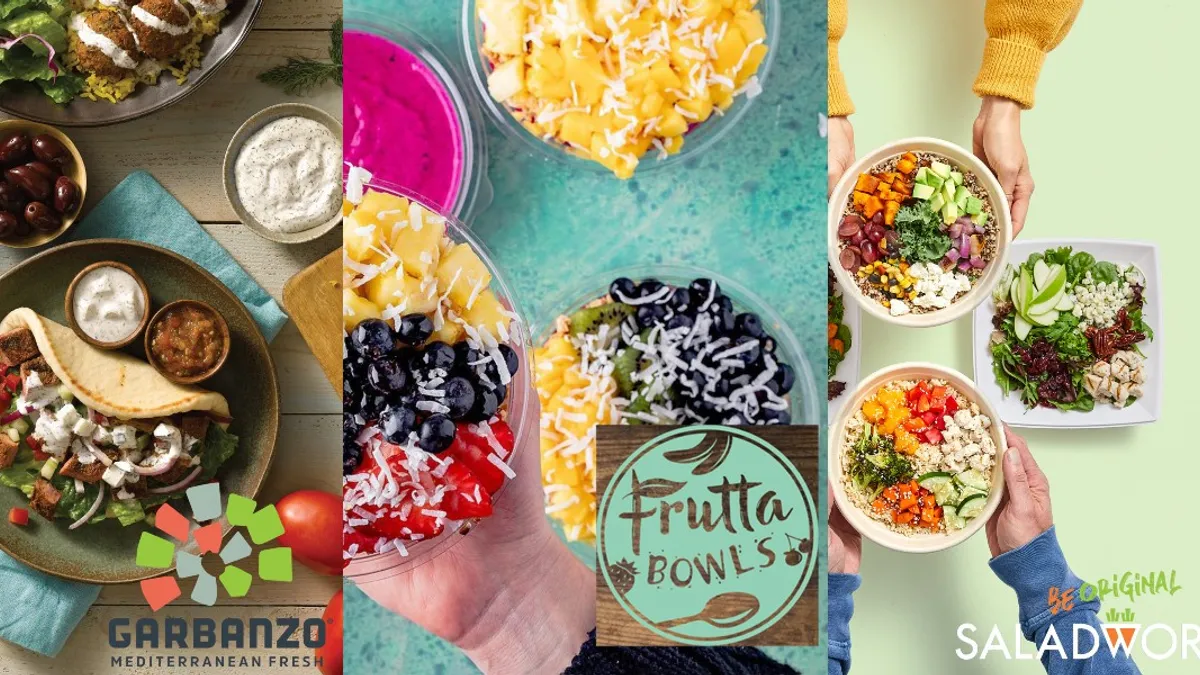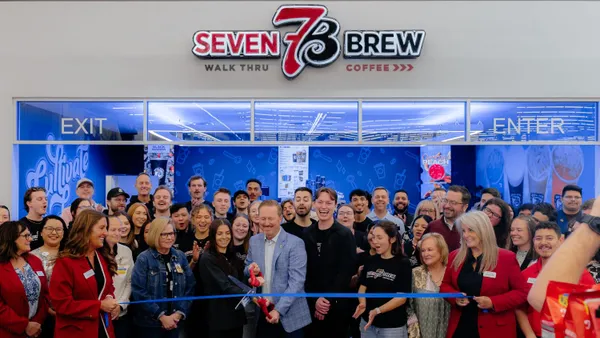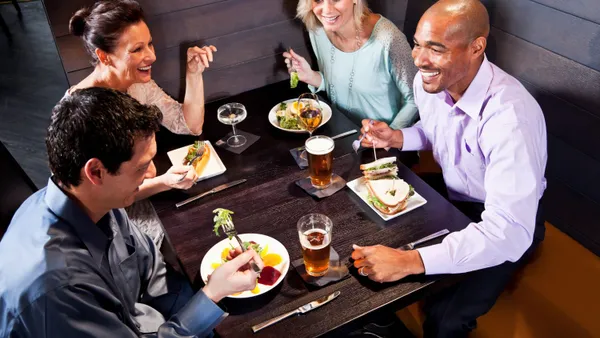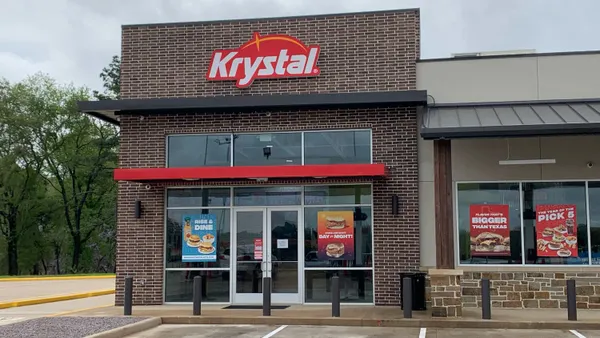Dive Brief:
- WOWorks plans to open more than 70 new restaurants by the end of the year, 61 of which will be nontraditional locations like ghost kitchens or units in airports, college campuses and grocery stores. Eighty-three percent of the company's 18 restaurants that opened in Q2 were non-traditional locations.
- The company is also exploring co-branded concepts where one restaurant location houses two WOWorks brands, a strategy WOWorks believes could be attractive to franchisees interested in accessing new dayparts. In the past three months, WOWorks brands have signed 13 franchise agreements.
- WOWorks was created in December with a plan for "explosive growth" across its now five restaurant brands through non-traditional and traditional locations. Non-traditional locations may be a higher priority now, however, as recovery from the pandemic continues and diner demand for off-premise channels holds steady.
Dive Insight:
Nontraditional locations such as ghost kitchens have become an integral part of WOWorks' growth plans. Eric Lavinder, WOWorks' chief development officer, recently said ghost kitchens have proven to be an "economical and highly successful expansion tactic for us," so the company's acceleration in this space should come as no surprise.
Ghost kitchens also provide the company's brands with more points of distribution, CEO Kelly Roddy said in April. Further, ghost kitchens can enable operators to boost their revenue and grow into new markets without a hefty brick-and-mortar investment, features that could appeal to potential franchisees.
The company teamed up with Combo Kitchen in April to facilitate this growth within its system, building on Saladworks' partnership with Ghost Kitchen Brands to nearly double its footprint in U.S. and Canada this year. Most of these kitchens will be located in Walmart, while the concept has also opened in Kroger, ShopRite and The Giant Company. Saladworks has also partnered with Reef Technology and Chowbotics to open more nontraditional locations.
WOWorks' nontraditional strategy extends well beyond ghost kitchens. In July, Frutta Bowls partnered with outdoor eatery concept SteelCraft, which uses shipping containers as the base of its restaurant designs. This also allows the concept to enter new markets with a lower-cost footprint.
The company's pursuit of locations in airports, college campuses and grocery stores could also prove to be lucrative, though the rising Delta COVID-19 variant could undermine the potential of these channels. Airport restaurant traffic came to a near halt during the pandemic, with airport shops and restaurants losing a total of $3.4 billion in 2020. But air travel is picking back up again, making these locations more appealing. According to the Transportation Security Administration, airline travel in the U.S. reached its highest level since the pandemic began in March.
College dining also took a hit as classes went remote in 2020. One consultant, however, believes campus dining will return as a critical part of the student experience and may even be used as a recruitment tool in a competitive environment.
Building off Saladworks' existing strategy of establishing a bigger grocery store presence could also work in WOWorks' favor to target a captive consumer, as grocery retail is expected to outpace restaurants for share-of-stomach dollars in a post-pandemic environment, according to the Food Industry Association.













